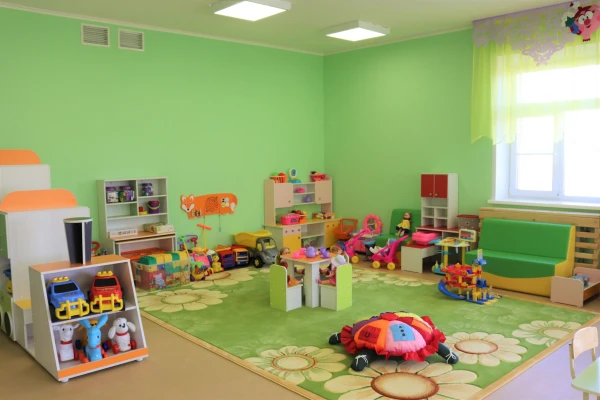
It is customary to write about Latvian demographics with a negative sign, but in fact, there is good news as well. For example, it was recently announced to the population that they will live longer than ever. Isn't that a reason for celebration?
People in the Riga Region Live Longer Than in Rezekne
According to recently published data from the Central Statistical Bureau (CSB), the average life expectancy for newborns in Latvia in 2023 was 75.5 years, including 70.4 years for men and 80.4 years for women.
The average life expectancy for children born in 2024 is projected to be 76.4 years, including 71.3 years for men and 81.1 years for women. "This is the highest figure in history," reports the CSB.
The CSB also states that the highest life expectancy is among women living in the Riga region (81.5 years) and men living in the Vidzeme region (72.5 years), while the lowest life expectancy is in Latgale: 68.8 years for men and 79.9 years for women.
Data also show that the average age of the population is gradually increasing, reaching 43.4 years at the beginning of 2025. The average age for men was 40.3 years, while for women it was 46.2 years. In the Riga region, the population is younger, with an average age of 42.6 years, while in Latgale, it is older, with an average age of 45.9 years.
Who Would Dispute This?
Life expectancy is one of the most important indicators of quality of life overall. Who would dispute this? Living long means living well. Life expectancy in Latvia has been increasing for a long time, but with some setbacks. The latest setback occurred recently.
The first data available is from 1896. At that time, the life expectancy for newborns in Latvia was estimated at 42.6 years. Greetings to everyone who nostalgically remembers the good old days! However, such a low figure was mainly due to very high infant mortality. Those who survived a "happy childhood" had many chances to live to a respectable age.
In the 1920s, life expectancy in Latvia reached 53–56 years, and by 1940 it had reached 58 years. Then, of course, there was a war-induced decline. In the 1960s, people in the Latvian SSR lived on average 70–71 years (a huge progress!), while in the 1970s, the average was only about 69 years. The Brezhnev stagnation seemed to have affected this indicator as well.
In the 1980s, life expectancy also hardly grew, stagnating at 69–70 years. And in the 1990s, a understandable decline began. The collapse of the USSR dropped the quality of life and its duration to about 66 years in 1994-95. By the early 2000s, the figure had risen to 71 years, with a subsequent steady increase until the beginning of the pandemic. Due to high mortality from COVID, the figure naturally decreased, but now we are again in a phase of growth.
And yes, 76.4 years – Latvians have never lived so long. Isn't that a reason for a national-level celebration? When the hockey players won bronze medals at the World Championship, which everyone had long forgotten about, a holiday was declared in the country, and for such a great achievement, there won't be at least a fireworks display? It seems that something is definitely wrong with the prioritization in this country.
Oh, If Only There Were More Health!
Unfortunately, the long life of Latvians is overshadowed by the fact that this life is not very healthy. This is disappointing. We tried so hard, and all for nothing?
Not long ago, Eurostat published the latest data: in 2023, the average number of healthy years of life at birth in the EU was 63.1 years: 63.3 years for women and 62.8 years for men. Healthy years of life – that is, years without activity limitations – account for 75% of total life expectancy for women and 80% for men. Thus, men, on average, spend most of their shorter lives without activity limitations. At the same time, only in 9 EU countries do men have more healthy years of life than women. The life expectancy at birth for women in the EU is, on average, 5.3 years higher than for men (84.0 years vs. 78.7 years).
The highest number of healthy years of life for men was recorded in Malta (71.7 years), followed by Italy (68.5 years) and Sweden (67.2 years), while the lowest was in Latvia (51.2 years), Estonia (56.5 years), and Slovakia (56.8 years).
For women, the highest number of healthy years of life was also recorded in Malta (71.1 years), followed by Bulgaria (71.0 years) and Italy (69.6 years).
The lowest figure for women is again in Latvia - 54.3 years. Next are Denmark (55.4 years) and Finland (55.9 years).
It’s strange that these northern women are so frail – money doesn’t grow on trees, they practice yoga and jogging from morning till night, not to mention their native Scandinavian walking. Yes, it seems that the impact of climate cannot be outweighed by any amount of money or lifestyle. The figures above illustrate this quite vividly.
Are We to Blame?
Summarizing all this data, we conclude that Latvia is officially recognized as the unhealthiest country in the European Union. Life expectancy in the country is increasing, which is wonderful, but enjoying it is not very feasible – there is no health.
Of course, one can blame the population – they have developed harmful habits, lead an unhealthy lifestyle, do not engage in sports, and so on. But the healthcare system in the country is also far from functioning optimally. Even the doctors themselves acknowledge this.
"According to the methodology, healthy years of life are years without significant limitations in daily activities due to health problems. This indicator is influenced not only by public health parameters but also by other factors, among which access to medical care is of utmost importance," commented the aforementioned Eurostat data by the Latvian Trade Union of Healthcare and Social Care Workers.
As the union points out, the proportion of overweight people in Malta is higher than in Latvia. However, the proportion of the population that cannot access necessary medical services in Latvia is one of the highest in the EU, while in Malta this figure is the lowest.
"Despite the fact that in 2024 the European Commission recommended that Latvia strengthen its healthcare system, currently, the accessibility and quality of medical care in the country continue to drift away from the EU average. The proportion of residents reporting an inability to access necessary medical services in 2023 in Latvia was many times higher than the EU average (7.8% vs. 2.4%), and continues to grow," state Latvian doctors.













